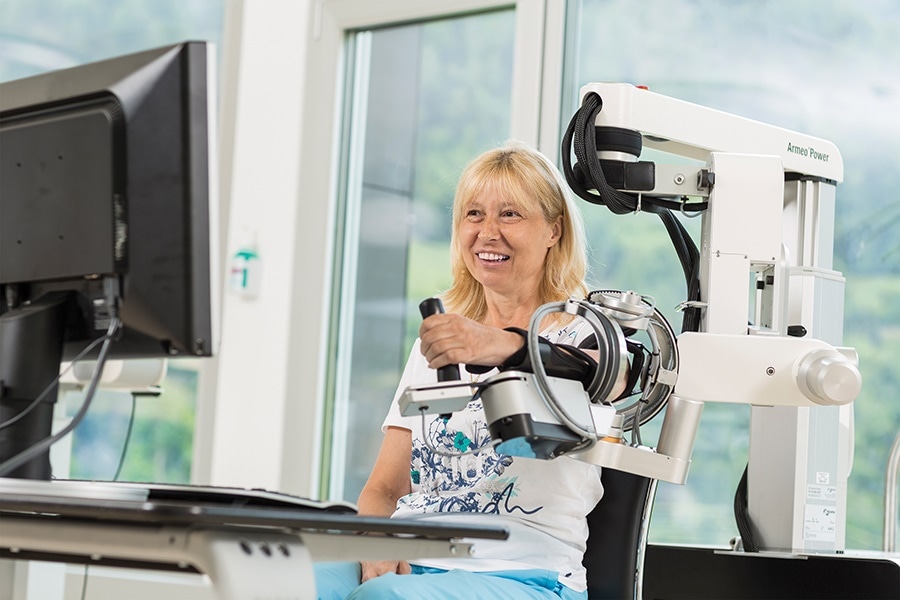Aug 25 2016
 Hocoma, Switzerland (Credit: COST)
Hocoma, Switzerland (Credit: COST)
As the population of Europe ages, an increase in the number of people needing rehabilitation due to stroke and other neurological diseases is expected. Occupational therapies and physiotherapies could offer the chance to recover lost movement and regain independence.
However, in many countries the number of health professionals is dwindling. Engineers and scientists are seeking the assistance of robots to meet the increasing demand.
Robots can provide locomotion training in place of two or more physiotherapists helping an unsteady patient move their limbs and supporting them on a treadmill. P hysiotherapies can provide feedback and encouragements.
This is just the beginning. Robots can also motivate patients through gaming and virtual reality technologies.
Dr Thierry Keller, Director of Rehabilitation at Tecnalia Research & Innovation
People who are losing mobility due to multiple sclerosis, and those who have endured spinal injuries and are in need of rehabilitation could also benefit from these technologies. Europe is a leader in this area, which is rapidly growing and was the subject of COST TD1006.
The COST Action was the first to identify the wide range of stakeholders working in this field and started developing a common language.
We identified and invited all stakeholders working on neurorehabilitation - doctors, engineers, neuroscientists and experts in motor control - to work with our multidisciplinary network.
Dr Thierry Keller, Director of Rehabilitation at Tecnalia Research & Innovation
Robot-assisted neurorehabilitation has gained recognition due to the COST Action. Guidelines on the use of robots in the assessment of patients are being finalized by network members, and will be featured in leading journals in the field before 2016 comes to an end.
The network also assisted in the production of the multi-annual roadmap. The roadmap is produced for a public-private partnership (PPP) in Horizon 2020, by euRobotics, and consists of an agenda for further work in the field of robotic rehabilitation.
A European MSc in advanced rehabilitation therapies (ART) is also offered by the Action members.
The Action also provided support to the foundation of the International Industry Society of Advanced Rehabilitation Technology (IISART), which intends to help the society and patients by furthering the use of modern healthcare technologies.
Nearly 100 out of the 200 participants of Action were members and early career instigators who formed strong connections with SMEs in a market with high potential.
The next step in this field is to merge various technologies so that health professionals can use them more easily. There is also a lot of work being done to incorporate feedback; to create a closed-loop system which would allow us to observe the impact of robot-assisted rehabilitation on the brain.
Dr Thierry Keller, Director of Rehabilitation at Tecnalia Research & Innovation
The availability of healthcare experts, and the structure and funding of the healthcare system are some of the major barriers for the extensive use of these technologies. “In future, these tools could be used in outpatient clinics and at home by patients and their families,” explains Dr Keller. “The robots will become more sophisticated and intelligent but also easier to use.”
Applications for EU funding in fields such as computer software and wearable robotics have been made by network members. These fields combine various rehabilitation technologies, including those that anticipate clinical outcomes, deliver numerous rehabilitation treatments simultaneously and inform the decision of healthcare professionals.